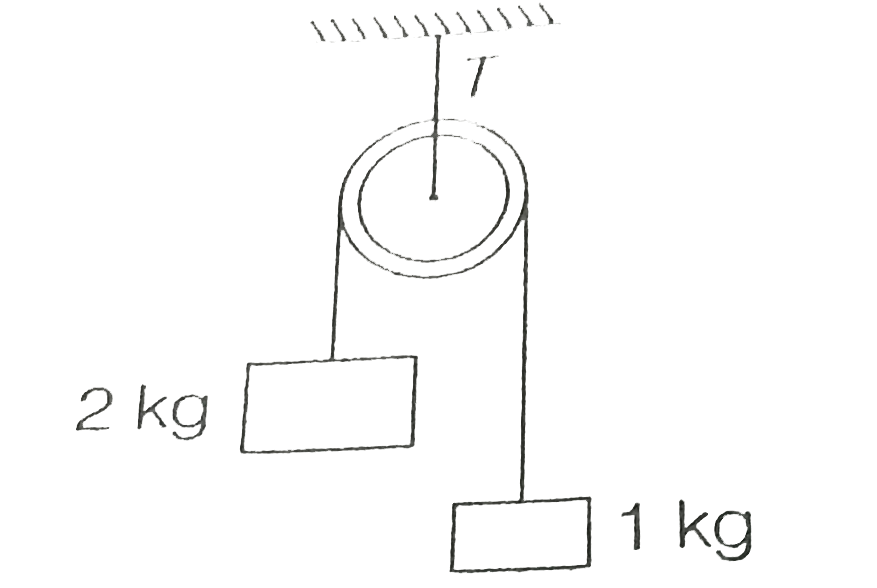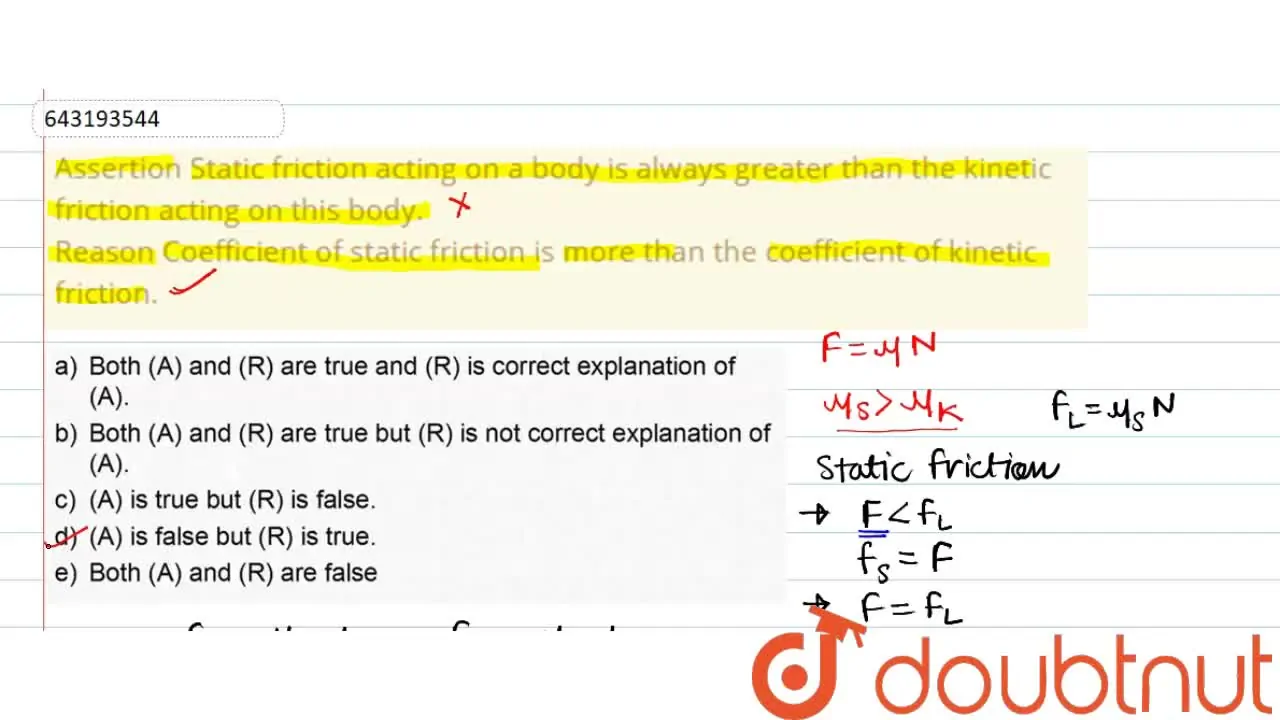These questions consists of two statements each printed as Assertion and Reason. While answering these question you are required to choose any one of the following four responses
Assertion Static friction acting on a body is always greater than the kinetic friction acting on this body.
Reason Coefficient of static friction is more than the coefficient of kinetic friction.
If both Assertion and reason are true and the reason is a correct explanation of the assertion.
If both Assertion and reason are true and the reason is not the correct explanation of the assertion.
if assertion is true but reason is false
if assertion is false but reason is true
The correct Answer is:A
(a) Static friction varies between zero to a maximum limiting value.
Since μmgcosθ is more, block will remain stationary.
Similar Questions
These questions consists of two statements each printed as Assertion and Reason. While answering these question you are required to choose any one of the following four responses
Assertion Friction opposes motion of a body.
Reason Static friction is self adjusting while kinetic friction is constant.View SolutionThese questions consists of two statements each printed as Assertion and Reason. While answering these question you are required to choose any one of the following five responses.
Reason: In an eleastic collision, the linear momentum of the system is conserved.View SolutionThese questions consists of two statements each printed as Assertion and Reason. While answering these question you are required to choose any one of the following four responses
Assertion The weighing machine measures the weight of a body.
Reason Weightlessness means the absence of weight.View SolutionThese question consists of two statements each printed as Assertion and Reason. While answering these question you are required to choose any one of the following five responses.
Assertion: Emissive power of a perfectly black body is one.
Reason: Absorptive power of perfectly black body is one.View SolutionThe question consist of two statements each, printed as Assertion and Reason. While answering these questions you are required to choose any one of the following four responses:
Assertion: Charge on the complex of ferric ion with EDTA is minus one.
Reason: EDTA is a hexadentate ligand.View SolutionThese questions consists of two statements each printed as Assertion and Reason. While answering these question you are required to choose any one of the following four responses
Assertion In the shown figure, tension T connected to the ceiling is 10N<T<20N

Reason System is not stationary.View SolutionThe question consist of two statements each, printed as Assertion and Reason. While answering these questions you are required to choose any one of the following four responses:
Assertion: NF3 is weaker ligand than N(CH3)3.
Reason: NF3 ionizes to give F− ions in aqueous solution.View SolutionThese questions consist of two statements each, printed as
Assertion and Reason. While answering these questions you are
required to choose any one of the following four responses:
Assertion: [Co(NO2)3(NH3)3] does not show optical isomerism.
Reason: It has a plane of symmetry.View SolutionThese questions consist of two statements each, printed as Assertion and Reason. While answering these questions you are required to choose any one of the following five responses.
Assertion: Specialization of cells is useful for organism.
Reason: It increases the operational effciency of an organism.View SolutionThe question consist of two statements each, printed as Assertion and Reason. While answering these questions you are required to choose any one of the following four responses:
Assertion: Co-ordination number of cobalt in the complex [Co(en)3]3+ is six.
Reason: Ethylenediamine acts as a bidentate ligand.View Solution


